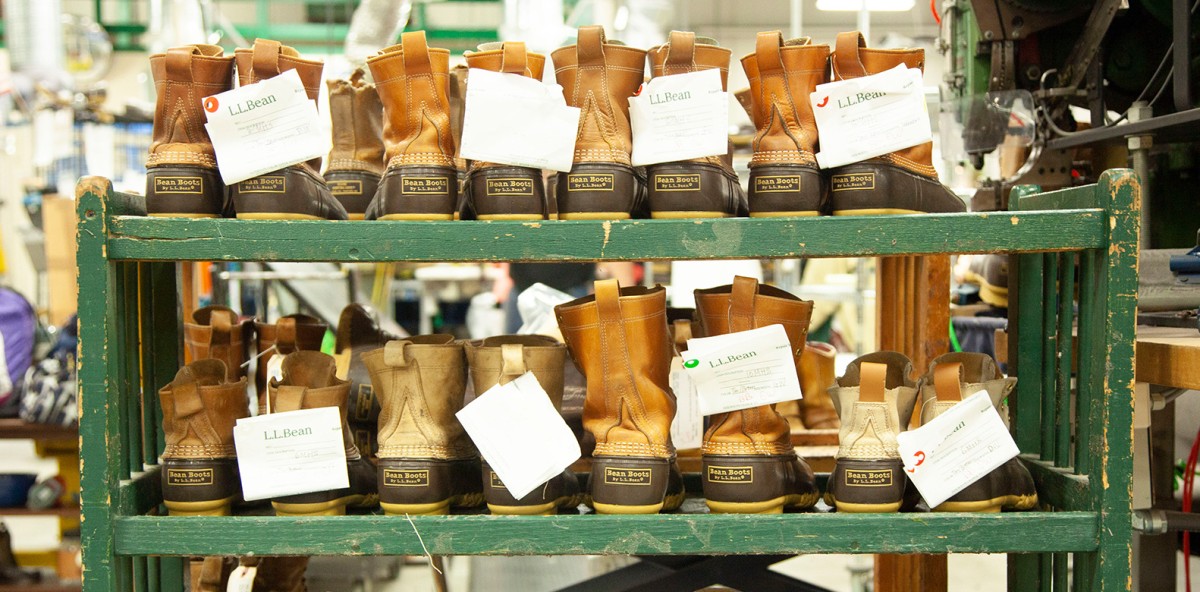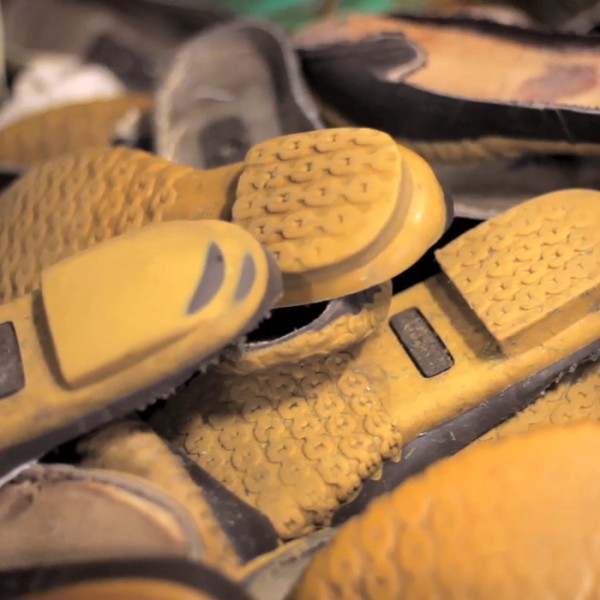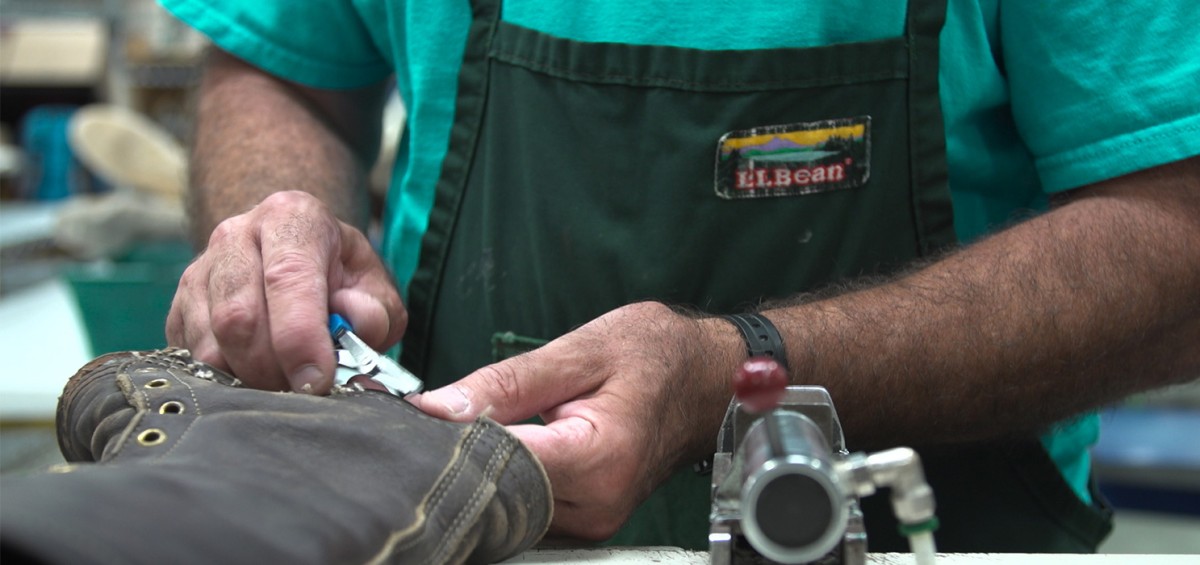More Footprints. Less Carbon Footprint.
Our founder, Leon Leonwood Bean, believed that throwing away a Bean Boot when it could easily be salvaged was an exercise in wastefulness. Today, we might call it a commitment to sustainability.
The Bean Boots arrived at our factory in Brunswick Maine – like many of the 12,000 pairs we receive each year – to be resoled. The signature rubber bottoms were now threadbare after many years of tromping through hard wilderness, but the leather was broken in just so, softened and molded perfectly to the foot of the owner.
There was no return address on the package. Only a phone call received days later from the Alaskan backcountry – the woman on the other end asking us if we could repair her favorite pair of Bean Boots. We told her the same thing we’ve been telling customers since 1917: of course we can.
Haste Makes Waste
According to the U.S. Department of the Interior, American consumers throw away at least 300 million pairs of shoes each year. It turns out that fast fashion actually wears out faster – and the materials left behind can take decades to decompose.
Bean Boots, on the other hand, are crafted slowly, carefully, deliberately – with a singular focus on making the world's best duck boot. Each pair takes up to an hour and a half to make from start to finish. And since they take longer to make, they last longer, too. But when you eventually wear them out (because even we know that nothing lasts forever), you don’t have to toss them out. Send them back to Maine, and for a small fee we’ll replace only the parts that need to be replaced. That means fewer materials are wasted, less energy is expended, and more of our environment’s precious resources are preserved.
“Do not throw away old tops. Will attach new rubbers and make tops as good as new.”
—L.L.Bean Maine Hunting Shoe ad, 1917
By Replacing the Sole, We’re Keeping the Soul
Visit our Bean Boot manufacturing facility and you’ll find bin after bin of boots waiting to be refurbished and returned to their faithful owners. Every boot upper gets cleaned, conditioned and polished before it’s sent home—unless the owner insists we don’t. “Some people want the battle scars,” says Jack Samson, who runs the Brunswick plant. “Or they’ll say, ‘This is sentimental. Just replace the bottoms.’”
These are boots that have traveled the world. Boots that have been passed down through generations. Boots loved so long – some 40, 50, even 60 years – that they fit like a second skin.
We’re proud of what we make, so we feel a real sense of duty to get them ready for another round of outdoor adventures and muddy trails and curbside puddles.
Many years from now, we hope to see them again.




